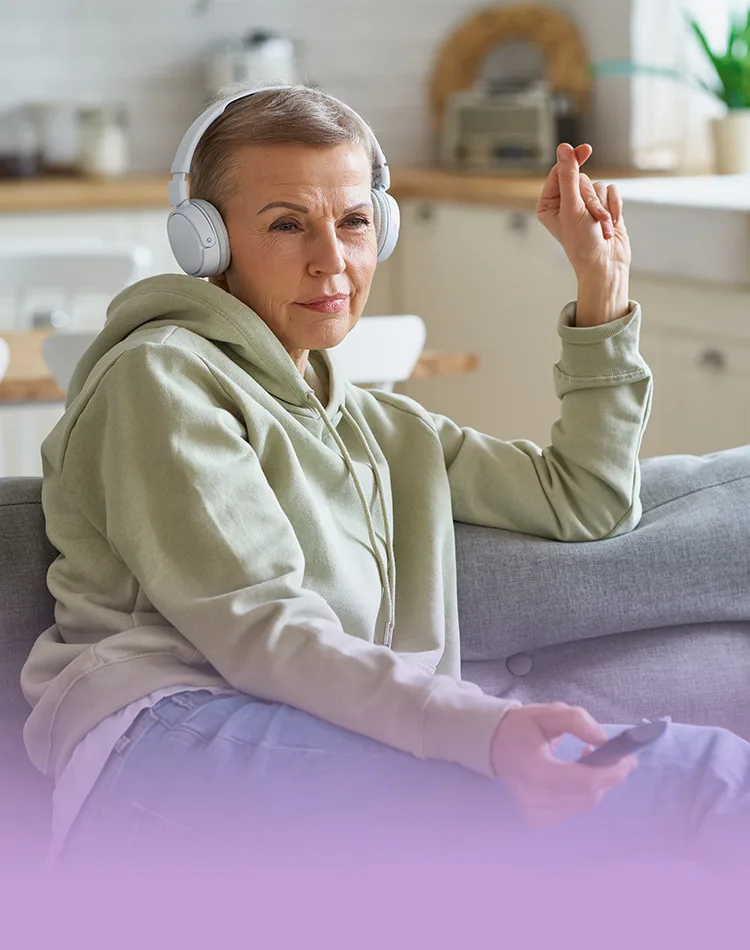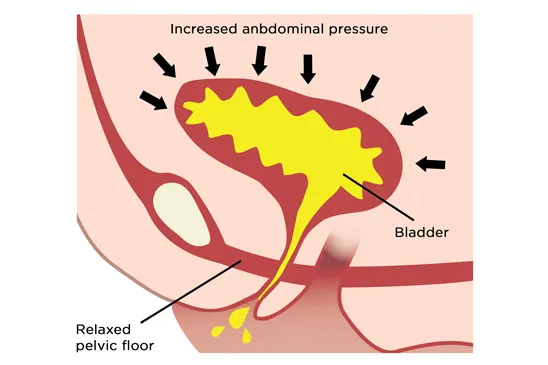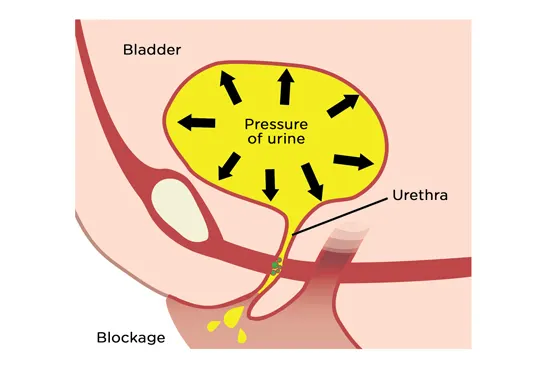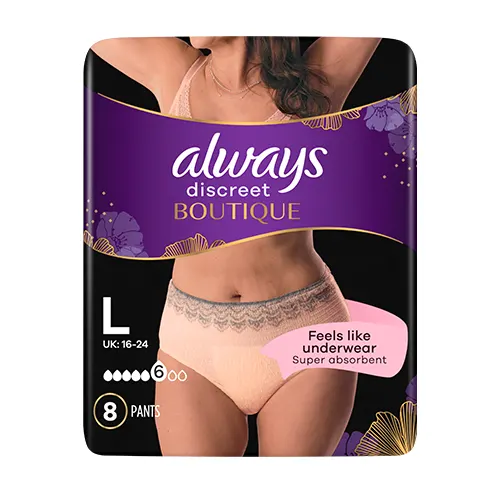
I’m doing something bold today – I’m coming out to the world about my pee woes. Yes, that’s right. I’m revealing to all of you here that I have adult incontinence – because I believe that the more we talk about incontinence in adults, the more normal it will seem (and it is very normal!), so we can help each other live our best lives without feeling embarrassed.
Many people think of incontinence in adults as something that is reserved for nursing homes and the elderly. This is partly why it took me so long to admit to myself that I have adult incontinence. After doing lots of research on the subject, I learned that adult incontinence isn’t something only experienced by the elderly. After all, it’s called adult incontinence, not elderly incontinence. Somehow, my brain skipped over that fact.
In fact, it took me years of walking around in damp underwear and always scoping out the fastest route to the nearest toilet until I decided to ‘woman’ up, admit what was really going on, and buy myself some protection. And, why? All because I was too young to have adult incontinence.
So, here’s the big reveal: Incontinence in adults is much more common than you may think. It turns out quite a lot of adult women in their 30s, 40s, 50s and 60s experience adult incontinence – actually 1 in 3! And I’m one of them! If you are too, education is a big first step in managing your condition and regaining your confidence.
So, here is everything you need to know about the main types of adult incontinence and what to do about it.
Stress Incontinence is the most common type of adult incontinence in women. When pressure is exerted on the bladder, urine is involuntarily released, leaving you damp. Sneezing, coughing, laughing, lifting heavy objects and exercise are the most likely activities to cause stress incontinence and urine leakage.

Stress incontinence is caused by a weakened pelvic floor – the system of muscles, nerves and ligaments that support the bladder and urethra. A woman’s body goes through many wonderful things throughout her lifetime. However, a lot of it, like pregnancy and childbirth, strains the pelvic floor, leaving it stretched and weakened. Weight gain and the hormonal changes of menopause can also contribute to this type of bladder leakage.
Treatment:
- Pelvic floor exercises
Performing kegel exercises strengthen the pelvic floor muscles so they are able to hold in urine more effectively and prevent bladder leakage in women. Read our article here all about pelvic floor exercises.
- Weight loss
Our body is often affected by life transitions, and menopause is a prime example. Weight gain and changes in body composition are common occurrences during this time. Carrying extra weight can strain the pelvic floor, leading to weaker muscles and an increased risk of stress incontinence. However, making small changes can make a significant difference in managing weight gain. For example, incorporating a daily walk into your morning or evening routine can help to reduce bladder leakage without the need for drastic measures.
- Get regular
Having regular bowel movements eliminates extra and unnecessary pressure on your bladder. To keep your gut moving, make sure that you eat lots of fibre. Try eating prunes as a snack for an overactive bladder treatment that is sweet to eat and delivers an extra boost to get your system moving. This should help reduce the frequency of urine leakages.
- Stop smoking
Smoking often leads to chronic coughing, also known as smokers’ cough. Coughing puts a strain on the pelvic floor and can aggravate your bladder muscles, leading to bladder leakage. Each time you cough, it can trigger little urine leakages. Leading a healthy lifestyle can alleviate symptoms of stress incontinence. If you need support with making changes have a look at the NHS's 'Quit Smoking' website which has useful advice and information on how to download their NHS Quit Smoking app: Quit smoking - Better Health - NHS (www.nhs.uk)
Urge Incontinence, also known as overactive bladder, is characterised by a strong and sudden urge to urinate that often results in leaking a significant amount of urine. There can often be such urgency of urination that women don’t make it to the toilet in time and experience a gush of urine. People with urge incontinence find themselves running to the loo upwards of eight times a day, and also often wake up in the middle of the night to go.
Urge incontinence is caused by nerve or muscle damage to the bladder and the surrounding tissues. This creates spasms in the bladder wall, inducing a continuous and uncomfortable urge to urinate. Damage to other parts of the nervous system can also play a part, especially when there’s a glitch in the communication between the bladder and the brain signaling when is the right time to go. Conditions such as multiple sclerosis, Parkinson’s disease, diabetes and stroke can cause damage that leads to urge incontinence. Some medications can also play a role.
Treatment:
- Adopt a bladder-healthy diet
Certain foods can irritate your bladder. Avoid caffeine, alcohol, spicy foods and fizzy drinks.
- Get on a schedule
Train your bladder by making a ‘go schedule’ in which you use the loo on a fixed schedule – say, every hour at first – whether or not you feel the urge to urinate. Once you feel comfortable with your schedule, try increasing the amount of time between each scheduled bathroom visit. Not only will this help retrain your bladder, it can also reduce the urgency you feel when you have to urinate.
- Stay hydrated
Though it may seem counter-intuitive, it is important to drink water if you have urge incontinence. The high acidity of overly-concentrated urine can aggravate your bladder, making your condition worse. Drink plenty of water to keep your urine diluted. You’ll know you’re getting it right when your urine is pale yellow or clear.
- Take medication
If you have tried the above remedies without much success, it may be time to talk to your doctor about medications that can help to ease the symptoms of urge incontinence.
Overflow Incontinence is the result of not being able to completely empty the bladder, leading to dribbles of bladder leakage throughout the day. For women with overflow incontinence, the bladder never fully empties, leaving some urine in the bladder. This can increase your likelihood of contracting urinary tract infections.

This type of adult incontinence usually happens as a result of a blockage or weak bladder muscles that prevent the bladder from fully emptying or from signaling that it is full. Overflow incontinence is the only type of urinary incontinence more common in men than in women, although women can still have it. In women, weak bladder muscles, a blocked urethra, pelvic organ prolapse, scar tissue or kidney stones can cause overflow incontinence.
Treatments:
- Catheterisation
Catheterisation involves threading a thin, flexible plastic tube through your urethra up into your bladder in order to drain any remaining urine. This serves to alleviate the pressure put on the bladder when it is overly full or fails to empty. Catheterisation can either be intermittent or fixed. It should always be inserted under the guidance of a medical professional.
- Surgery
Surgery can be performed to remove any physical blockage of the bladder that is causing the overflow incontinence.
Staying dry and comfortable
Regardless of what type of adult incontinence or bladder leakage you may have, stay dry and confident with Always Discreet incontinence liners, pads and underwear. No matter which level of absorbency you need, their innovative protection locks away wetness and odours within seconds, so you don’t have to miss out on all that life has to offer.





